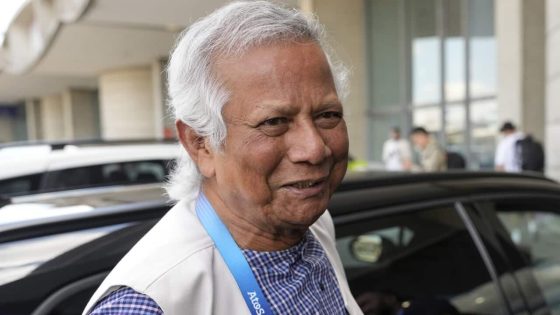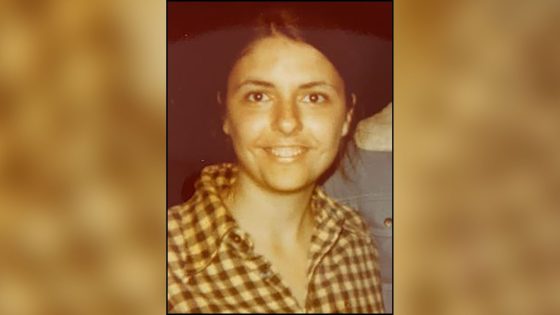From defeat against Aston Villa in early December to a relentless, 23-game unbeaten run to an unprecedented fourth Premier League title and a sixth crown in seven seasons, there has again been an impregnable air to Pep Guardiola’s Manchester City. But, internally, it did not always feel that way. Far from it, in truth.
This was the season when Guardiola and a number of the club’s inner circle feared, privately, that the team would finally blow up, that the aura of invincibility would burst. Not because of a lack of trust or faith. But because the turnaround from that treble-winning campaign — which had run into mid-June — was so quick that it felt like two seasons “bolted together” and it was clear as the months progressed that many players were still mentally and physically exhausted from those extraordinary efforts — the hangover after the hangover.
The players had actually amazed Guardiola and his staff that they got to the point in mid-April where another treble felt within reach and the performance in the second leg of their Champions League quarter-final defeat by Real Madrid should have been good enough to carry them into the last four. Yet it was the manner of the exit that most concerned Guardiola. That penalty shoot-out loss after 30 gruelling minutes of extra-time was as crushing emotionally as it was physically.
Coupled with the perverse scheduling of their FA Cup semi-final against Chelsea at Wembley, which sparked fury inside the club — and even left some wondering if there were powers out there deliberately trying to sabotage their season — the feeling was that if things were going to be derailed, this was the moment.
It is why Guardiola was so emotional after watching Bernardo Silva, his body at breaking point, cast aside the heartbreak of his shoot-out miss 72 hours earlier to score the late goal against Chelsea that edged City into a second successive Cup final against Manchester United.


Sources who have seen Guardiola up close and personal for years now say they have seldom seen him bursting with such pride, emotion and a profound sense of awe at his players than in those private moments at Wembley when words alone could not do justice to how he felt.
Insiders said it was probably telling that it was in the days after that Guardiola finally gave public voice to the demons that had stalked him for much of the campaign, talking about how “all the time I’m thinking ‘They will fall down’”, that it “would not be possible”, only for his players to keep proving him wrong.
Walker leads emergency summit
December 6 was a dark day in the City dressing room. A 1-0 defeat at Villa — probably their worst performance since a 2-0 loss to Southampton in the Carabao Cup 11 months earlier — had left them fourth in the table, six points adrift of leaders Arsenal. It would also mark top scorer Erling Haaland’s last game for two months because of a stress fracture in a foot.
City had taken just three points from a possible 12 and were shipping too many goals. The leadership group led by captain Kyle Walker and also comprising Kevin De Bruyne, Rodri, Rúben Dias and Bernardo called an urgent team meeting. Things needed saying, excuses quashed. Grievances, frustrations, complaints aired, ideas shared. Every player could say their piece. It may not have been quite as dramatic as the summons from the former City captain Fernandinho midway through the 2020/21 campaign but it would have a similarly galvanising effect.
Despite his age and experience, Walker did not appear an obvious choice to succeed Ilkay Gundogan as captain given the lurid headlines his personal life continues to attract. But he had won even greater respect among the dressing room for the way he put aside the acute personal disappointment of being left out of the starting XI for the Champions League final in Istanbul to deliver a stirring pre-match address to his team-mates. There, the players said, was a leader and here, six months on, he was bringing them together again.
And so, via victory in the Club World Cup in Saudi Arabia, another first for the club, City began the process of hunting down Arsenal for the second successive season — and this time there would be no collapse from Mikel Arteta’s side to aid them.
Foden seizes centre stage
Guardiola has called this his “toughest” season to date at City and there is substance to that. Only Rodri and Phil Foden have consistently hit the heights. De Bruyne missed five months having ruptured a hamstring on the opening day and only returned in January, admittedly since when he has been creating chances from open play at a faster rate than any Premier League player since Opta began recording such statistics two decades ago. Haaland, John Stones and Jack Grealish have also missed sizeable chunks of the campaign through injuries. It is also easy to forget now that the summer transfer window was a rare disappointment.
City had pretty much staked all their chips on getting Jude Bellingham out of Borussia Dortmund ahead of Real Madrid, as they had Haaland 12 months earlier, and were prepared to let Bernardo as well as Gundogan go on top of the departing Riyad Mahrez in anticipation of the England midfielder’s arrival. But, by the May, those plans had collapsed around them. Bellingham was heading to Madrid and suddenly City were battling to convince Bernardo and Gundogan to stay. Gundogan and Mahrez’s exit for Barcelona and Al-Ahli respectively took 26 goals out of the team and a whole lot of influence and know-how with it. Cole Palmer was sold to Chelsea shortly after scoring in the European Super Cup final against Sevilla that City won on penalties in August and every goal the England forward has scored since in a stunning breakout season has raised questions about the wisdom of that decision. To compound matters, Walker was seriously considering his own future amid an enticing offer from Bayern Munich.


A move for West Ham’s Lucas Paqueta had to be abandoned when the Brazil midfielder became the subject of a Football Association investigation for alleged betting breaches and Declan Rice rejected City in favour of joining Arsenal. Little went to plan. “It was a different summer for us … hard to improve a treble-winning squad that isn’t in a transition period,” one senior source said.
Croatia defender Josko Gvardiol has come good in the last couple of months to finally look like he belongs but the £77 million signing from RB Leipzig struggled for the first two thirds of the campaign. Mahrez’s replacement, Jeremy Doku, started strongly, fell away, but has since played an important role from the bench. Mateo Kovacic made sense as a £25 million stop-gap but was never going to be able to do what Gundogan did and Matheus Nunes — a distant fourth-choice target behind Bellingham, Paqueta and Rice — has barely featured. The burden, then, on established heads was considerable, all the more so given De Bruyne’s absence and Gundogan’s exit. Step forward Foden.


To gain some understanding of the fires that have burned in the England midfielder you have to go back to the final months of last season when he was a substitute for most of the biggest games during that treble hunt, including the Champions League final. But there was a tantalising glimpse of things to come in the way he revelled centrally against Inter Milan after coming on to replace the injured De Bruyne and it would effectively foreshadow this season. Guardiola always felt Foden needed to learn when to slow down the game before he was ready to play as a central midfielder in his team and not have his foot pressed on the accelerator all the time.
The penny dropped and now Foden is running games. Brentford away in February, when City went behind, was a case in point, a 25-minute hat-trick quickly demolishing any sense of an upset. United got the same treatment the next month, Aston Villa the month after that. He has 25 goals and counting in all competitions, the Premier League’s Player of the Season and Football Writers’ Association Footballer of the Year awards speaking volumes.
Rodri’s influence has been no less considerable, even if he had practically to beg Guardiola for a rest by early April. City’s four defeats this term all came when the Spain midfielder was missing and he has now gone 72 matches unbeaten for the club.
Haaland puts in dirty work
There was a degree of inevitably to the scrutiny that has followed Haaland after that freakish debut season when he plundered 52 goals. He is on 38 this season and might argue he would have more had he not been substituted early against Wolves a fortnight ago having already scored four goals in the game.
He did not hide his unhappiness at Guardiola’s decision to substitute him, despite the manager’s unconvincing attempts to suggest Haaland’s frustration lay with the referee’s failure to clamp down on his rough treatment. The disappointment passed quickly but there has been more lingering annoyance at what he feels has been some of the excessive criticism that has come his way, not least the debate that formed when Roy Keane likened his general play to that of a League Two player after March’s 0-0 draw against Arsenal.
Haaland believes there has been a failure externally to recognise a lot of the dirty work he has done and ability to draw defenders to free up space for team-mates. Interestingly, the Norwegian feels he has sacrificed himself at times to help the team and served almost as a decoy. It has not been lost on those at City that he is winning possession in the final third twice as often in the league this season as last.
So what next for City? It does seem slightly perverse that we are talking about a team winning another league title with the same cloud still hanging over them from this time last season.
It is 15 months now since the Premier League hit City with 115 charges — which they strenuously deny — and there is an expectation the case will finally be heard at some point next season, which might yet be Guardiola’s last in charge at the club. It could, to say the least, be eventful.
Source Agencies



